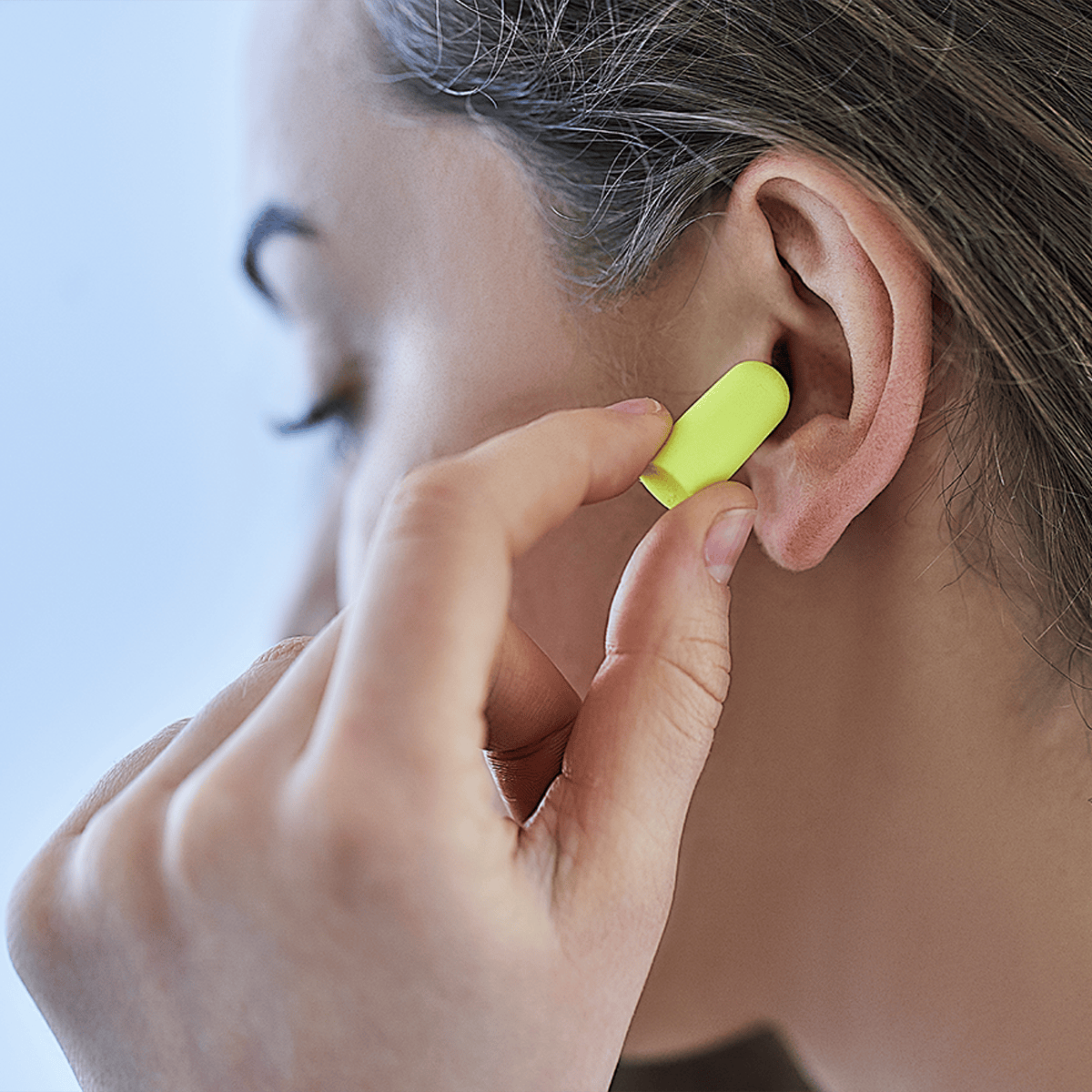Understanding Closed Captions in Movie Theaters and at Home: A Guide to Hearing Accessibility

Do you want to catch the newest movie at the theater or stream it from the comfort of your home but are nervous about how your hearing loss may affect your experience?
For many people, enjoying movies on the big screen can be a little difficult without the right tools and resources. Luckily, there are many solutions available like closed captions for movie theaters, assistive hearing devices, sound bars for amplification, and Bluetooth™ hearing aids that can help make both your movie and television experience a whole lot better.
How Does Closed Captioning Work in a Movie Theater?
By law, movie theaters must provide the correct accessibility tools, including closed captioning so everyone can enjoy the show. Title III of the ADA states, “Public accommodations that own, lease, or operate movie theaters have an existing obligation to provide effective communication to persons with disabilities through the use of auxiliary aids and services.”
Now, you’ll find closed captions in movie theaters across the United States. Regardless of the severity of your hearing loss, you deserve to enjoy movies at public theaters – free of exclusion and discrimination. Now that’s something to celebrate!
Don’t let your hearing loss hold you back. It’s time to schedule a movie date with your loved ones – just remember to ask for captioning devices and help when you get there.
Challenges of Watching Movies with Hearing Loss
Hearing loss can make it harder to enjoy things like going to the movie theater. Some of the more significant challenges include:
- Inconsistent quality of theater-provided assistive listening devices
- No availability of closed captioning
- Missing important dialogue, especially if the conversations move quickly
- Difficulty hearing background sounds that add context to the plot
- Inability to understand audio-based humor
Assistive Listening Devices for Theaters: What to Expect
One tool that can help you make the most of your movie theater experience is an assisted listening device. Availability varies by theater and location, but typically assistive listening devices offer amplified audio from movies while audio description offers spoken narration that gives in-depth explanations of important details from a movie.
Using assisted listening devices for movies can help reduce background noise from other theater-goers, control the volume of the movie, and provide a clearer sound directly into the user’s ear. Additionally, these tools can help improve speech recognition and are often compatible with hearing aids and cochlear implants.
The Benefits of Movie Theatre Closed Caption and Assistive Devices
Closed captioning can help you improve your comprehension of the film. It can also provide context for background noises, music lyrics, and sound effects, all things easily missed by a person with hearing loss.
Pairing closed captioning with an assistive listening device will improve your experience even more! Using the two together allows two of your senses – hearing and sight – to split the stress of understanding the movie. Not only will you understand the movie better, but you can also enjoy it stress-free!
Tips for Using Assisted Listening Devices and Closed Captions in Movie Theaters
Before settling into your seat, ask the theater staff for the necessary accessibility tools to enjoy yourself. In addition to an assistive listening device, you can also ask for a movie theater closed caption device to deliver captions right to your seat!
Want more? AMC theaters offer open captions (on-screen subtitles) on specific movies and releases at 240 of their locations. Just view their showtimes and filter for open captions to see captions right on the big screen.
These tips can also help make your movie theater experience better:
- Use accessible seating
- Ask about discounts
- Utilize assistance
- Arrive early
- Research ahead of time
Learn more about these tips for an accessible movie theater experience here.
How to Improve Your Home Theater Experience for Hearing Loss

As much fun as it is to enjoy a movie, sometimes a night cuddled in at home sounds better! But if you’re one of the many people the NIH says have hearing loss, watching movies and TV shows at home may feel daunting!
Getting the volume settings right may be a challenge, especially when certain programs and streaming platforms like Netflix and Hulu have different volume presets. Or perhaps you’ve been longing for the whole theater experience – surround sound and all but don’t have the right equipment.
Making movies and television more enjoyable is more than simply increasing the volume. According to the American Speech Language Hearing Association (ASHA), sounds over 85dB can damage your hearing faster.
So, how can you make your home theater experience better? Take some advice from accessibility options used in commercial movie theaters!
From finding great deals on soundbars that can help amplify sounds coming from your television to using Bluetooth™ to connect to your hearing aids or headphones, there are many tips and tools that can help you hear your TV better without having to worry about disrupting others around you.
- Place soundbars near your television to get a movie-like theater experience with surround sound from all angles! Check out the best soundbar deals right now.
- Use wireless headphones and connect to Bluetooth™ for more private listening and to avoid disrupting others by turning the volume up all the way. They may also cost less than you think, starting around $30 depending on the features.
- Connect your hearing aids directly via Bluetooth™ or loop system (a special type of sound system for people who use hearing aids that have a Telecoil) to hear the sounds from your favorite movie or television show better.
- Turn on closed captioning to see captions of a movie or TV show for a more enjoyable experience like captioned calls of what your callers say on your caption phone. How to turn on captions can vary by your service type and TV, but is typically found in your Settings.
There are several tips and tricks to help you hear your TV better. Try out a few until you find the one (or two!) that work best for you.
Enhance Your Movie Experience with Closed Captioning and Assisted Listening Devices
Whether you’re ready to enjoy an outing to the movie theaters or relive classics at home, don’t let hearing loss hold you back! Movies are a great way for you to spend time with your family and friends and even better with the right tools and resources.
Rather stay inside? Invite your loved ones over to watch a movie and make a day out of it. You might even choose to host a potluck style movie night and enjoy good food, good company and good movies! So, what do you plan to watch next?




